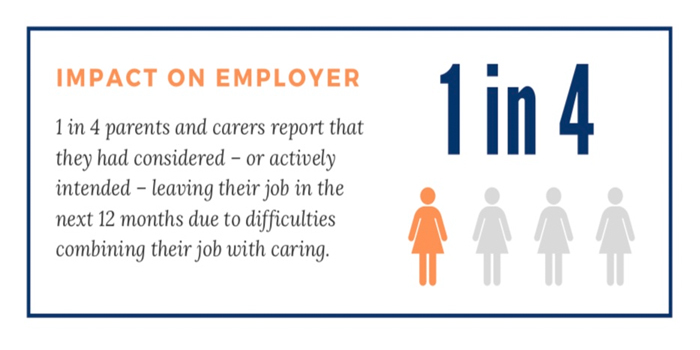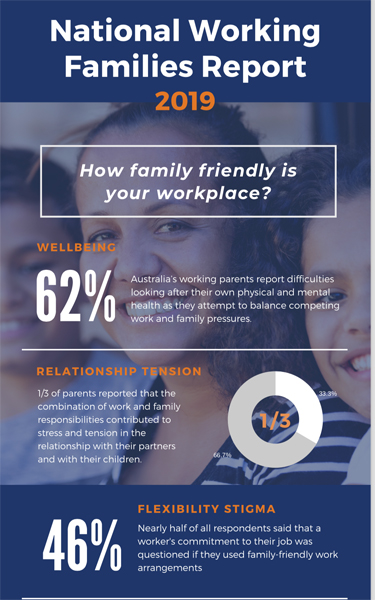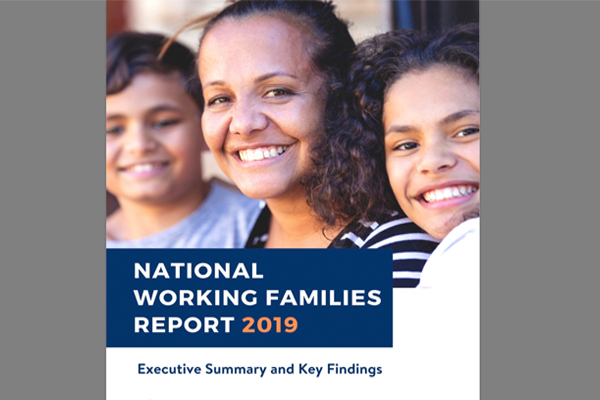Australia’s workplace parental/care policies are falling short of carer needs to better manage work and care responsibilities, according to Australia’s Working Families Report 2019.
The study reveals that 62% of Australian parents/carers experience difficulties looking after their own physical and mental health as they attempt to balance competing work and family pressures. The aim of the report, carried out by not-for-profit Advancing Parental Leave Equality Network (APLEN) and Karitane, was to explore the current state of play of Australia’s working families (6,289 in total). The findings reveal that workplace pressures not only present a significant challenge for individuals and the families they care for, but also have wider implications for employers.
Nearly half of the families interviewed said that their commitment to their job was questioned if they used family friendly work-policies. A quarter had even considered (or actively intended) leaving their job in the next 12 months, due to difficulties combining their job with caring responsibilities.

LACK OF SUPPORT
The report clearly demonstrates that parents and carers across Australia are finding it difficult to balance work-life and family commitments, highlighting inadequate workplace support from managers.
Many women returning to work after a maternity break said they felt unsupported, and didn’t have access to the same opportunities as colleagues who had not been on parental leave. In fact, one in three mothers said they had missed out on an opportunity for promotion, compared to 11% of fathers.
Although men generally experienced fewer issues, they too reported ‘negative comments from managers about their involvement in family caring responsibilities’, and for using paid parental leave (13% of fathers, compared to 23% for mothers).

FLEXIBILITY STIGMA
‘Flexibility stigma’ persists for both men and women, where their commitment to their job is questioned if they use flexible work arrangements, the study highlights. However, two thirds (64%) of parents reported that it is more acceptable for women to use family-friendly work options, than men.
Although jobs play an important role in the lives of Australia’s working parents and help them to feel fulfilled, they believe that employers should provide additional measures to help them better balance work and family demands. Parents/carers said the following workplace measures would help:
- More flexibility and ‘more control over when or where I work’.
- Access to better childcare support either at work or through childcare rebates from employers.
- Family-friendly champions and leaders in the workplace.
- Reduced job pressure and workload.
- Training for managers/leaders to help embed better family-friendly policies.
Click here for a copy of the key findings and Executive Summary of Australia’s Working Families Report 2019.








































